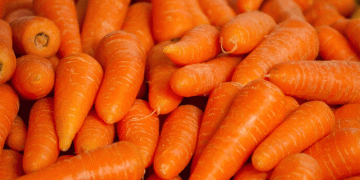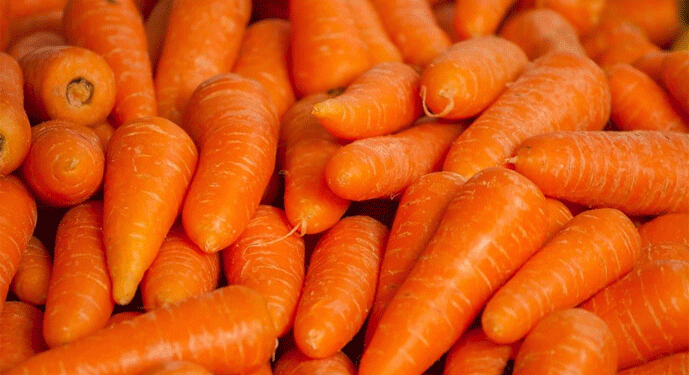In an era where precision irrigation is often considered non-negotiable for high-value vegetable production, the company “Podillia Vegetables” in the Ternopil region is taking a different path. The farm is successfully cultivating a 2-hectare plot of ‘Shantane’-type carrots exclusively under rainfed conditions, or “bohar.” This deliberate choice challenges conventional wisdom and highlights a strategic approach to crop management based on local environmental advantages.
The farm’s overall vegetable operation is diverse, including 8 hectares of sweet pepper and 2 hectares of plum tomatoes, all of which are on drip irrigation. This makes the decision regarding the carrots even more significant; it is not a matter of lacking infrastructure, but a calculated risk based on specific agro-climatic factors.
The Agronomic Logic Behind Forgoing Irrigation
According to co-owner Roman Pasechnik, the strategy is underpinned by two key factors:
- Adequate Annual Precipitation: The region receives reliably sufficient rainfall each year, creating a naturally favorable environment for growing the classic “borscht set” vegetables without supplemental water.
- Strategic Seeding Timing: The cornerstone of their success is an early entry into the fields. By sowing in March or at the latest in April, the crop germinates and establishes itself using the ample moisture stored in the soil from the spring thaw and seasonal rains. This allows the carrots to develop a deep root system that can access subsurface water during drier periods later in the season.
The choice of the ‘Shantane’ variety is also strategic. Known for its robustness, good storage qualities, and adaptability to various soil types, it is a reliable workhorse better suited to the potential stresses of rainfed systems than more delicate, Nantes-type varieties.
The Global Context: Water Scarcity and Economic Sustainability
This approach resonates with growing global concerns about water scarcity and the economic sustainability of high-input agriculture. According to the Food and Agriculture Organization (FAO), agriculture accounts for 70% of global freshwater withdrawals. A 2023 report from the International Water Management Institute (IWMI) emphasizes that optimizing “green water” (soil moisture from rainfall) is a critical strategy for building climate resilience, especially in regions like Western Ukraine with a relatively stable precipitation pattern.
Furthermore, from a business perspective, eliminating the capital and operational costs of irrigation for this crop—including drip tape, filters, pumps, and energy—directly improves the profit margin per hectare of carrots. This model demonstrates that strategic de-intensification can be a smart business decision, reducing both financial outlay and environmental footprint.
A Lesson in Context-Specific Agronomy
The success of “Podillia Vegetables” with rainfed carrots is a powerful reminder that advanced agronomy is not about uniformly applying the most high-tech solution everywhere. Instead, it is about making context-specific decisions that leverage local strengths.
For farmers and agronomists, the key takeaways are:
- Know Your Micro-Climate: Deep understanding of local rainfall patterns and soil water-holding capacity is a valuable asset.
- Timing is a Technology: Proper sowing timing to capitalize on natural soil moisture is a zero-cost input with a massive return.
- Variety Selection is Key: Matching crop genetics to the production system is fundamental to managing risk.
This case study proves that in suitable regions, a return to rainfed principles, guided by modern knowledge and careful planning, can be a viable and profitable component of a diversified vegetable operation.































